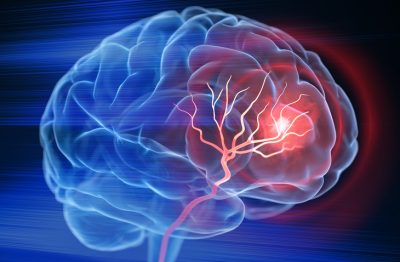
TIA Is Associated with Accelerated Cognitive Decline
June 15, 2025
By Babak Navi, MD, MS
Synopsis: The study investigators looked at data from a prospective study of 30,239 Black and white community-dwelling persons aged 45 years or older with cognitive evaluations over the phone every other year until 2022. The researchers documented patients who had transient ischemic attack (TIA) or stroke, and demonstrated that persons who had TIA had a cognitive decline trajectory similar to those patients who had a definite diagnosis of stroke.
Source: Del Bene VA, Howard G, Gropen TI, et al. Cognitive decline after first-time transient ischemic attack. JAMA Neurol. 2025;82(4):323-332.
Transient ischemic attacks (TIAs) are caused by temporary reductions in cerebral blood flow, typically from short-lived arterial occlusions that spontaneously reopen. The traditional mantra has been that TIAs do not cause permanent brain injury or sequelae. However, emerging data have suggested that TIAs may cause permanent brain injury in some cases, but these injuries are missed because they are small and below the resolution of standard magnetic resonance imaging (MRI) machines. Further, it is well known that stroke is associated with accelerated cognitive decline with aging, but the relationship between TIA and long-term cognitive function previously was uncertain.
The authors used data from the REGARDS prospective cohort study to evaluate the longitudinal cognitive function of patients before and after incident TIA as compared to the cognitive function of patients with incident stroke and asymptomatic controls. REGARDS is a National Institutes of Health-funded prospective cohort study that enrolled 30,239 Black and white community-dwelling persons aged 45 years or older living in the United States from 2003 to 2007.
Since 2006, REGARDS participants have undergone the following neuropsychological tests by phone every other year: CERAD Word List Learning, CERAD Word List Delayed Recall, animal naming verbal fluency, and letter F verbal fluency. In the current analysis, after applying appropriate exclusion criteria, the authors investigated longitudinal cognitive function through 2022 (median follow-up time, 14 years) in 16,203 participants divided into three study groups: those with incident TIA (n = 356), those with incident stroke (n = 965), and those with no incident TIA or stroke (n = 14,882). Importantly, all participants in the TIA group had brain MRIs at the time of their event to rule out readily visible acute infarctions.
The main findings were that, before their TIA, these patients had similar cognitive function and trajectory as asymptomatic controls, but after their TIA, these patients’ cognitive function declined more steeply over time than that of asymptomatic controls and at a rate similar to patients with incident stroke. These findings persisted after adjustment for demographics and vascular risk factors.
Commentary
An important strength of this study is that it included prospective data collected before the TIA, allowing the authors to evaluate cognitive trajectory before and after the event and thereby control for baseline cognitive function and vascular risk factors, some of which are associated with cognitive impairment. The main limitations of this study include the simplicity of the administered cognitive tests, which focused on short-term recall and verbal fluency, their performance by phone, and restriction to Black and white persons, hindering external validity beyond these races.
In conclusion, Del Bene et al have shown that TIAs are associated with accelerated cognitive decline at a rate similar to that after stroke. These findings suggest that TIA is far from benign and should be viewed as a risk factor for both stroke and cognitive decline. Patients with TIA should be monitored periodically for cognitive impairment over the course of their lives, especially since disease-modifying therapies for Alzheimer’s disease now exist.
Future studies are needed to determine how TIA promotes cognitive decline. Potential mechanisms include increased inflammation caused by disruption of the blood-brain barrier, deposition of pathological proteins, such as beta-amyloid, or permanent brain injury from infarcts not readily appreciated on standard brain imaging.
Babak Navi, MD, MS, is Vice Chair, Neurology Hospital Services; Chief, Division of Stroke and Hospital Neurology; and Associate Professor of Neurology and Neuroscience, Weill Cornell Medical College.